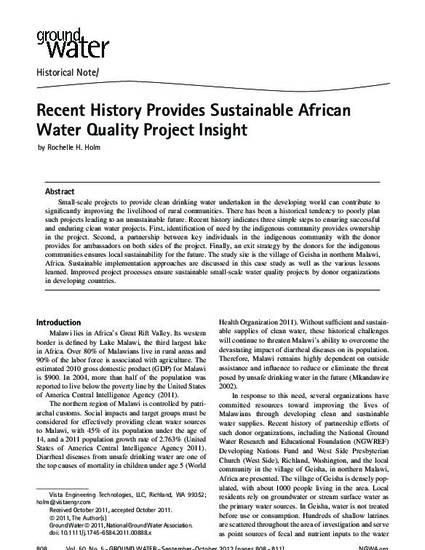
Small-scale projects to provide clean drinking water undertaken in the developing world can contribute to significantly improving the livelihood of rural communities. There has been a historical tendency to poorly plan such projects leading to an unsustainable future. Recent history indicates three simple steps to ensuring successful and enduring clean water projects. First, identification of need by the indigenous community provides ownership in the project. Second, a partnership between key individuals in the indigenous community with the donor provides for ambassadors on both sides of the project. Finally, an exit strategy by the donors for the indigenous communities ensures local sustainability for the future. The study site is the village of Geisha in northern Malawi, Africa. Sustainable implementation approaches are discussed in this case study as well as the various lessons learned. Improved project processes ensure sustainable small-scale water quality projects by donor organizations in developing countries.
Available at: http://works.bepress.com/rochelle-holm/34/
